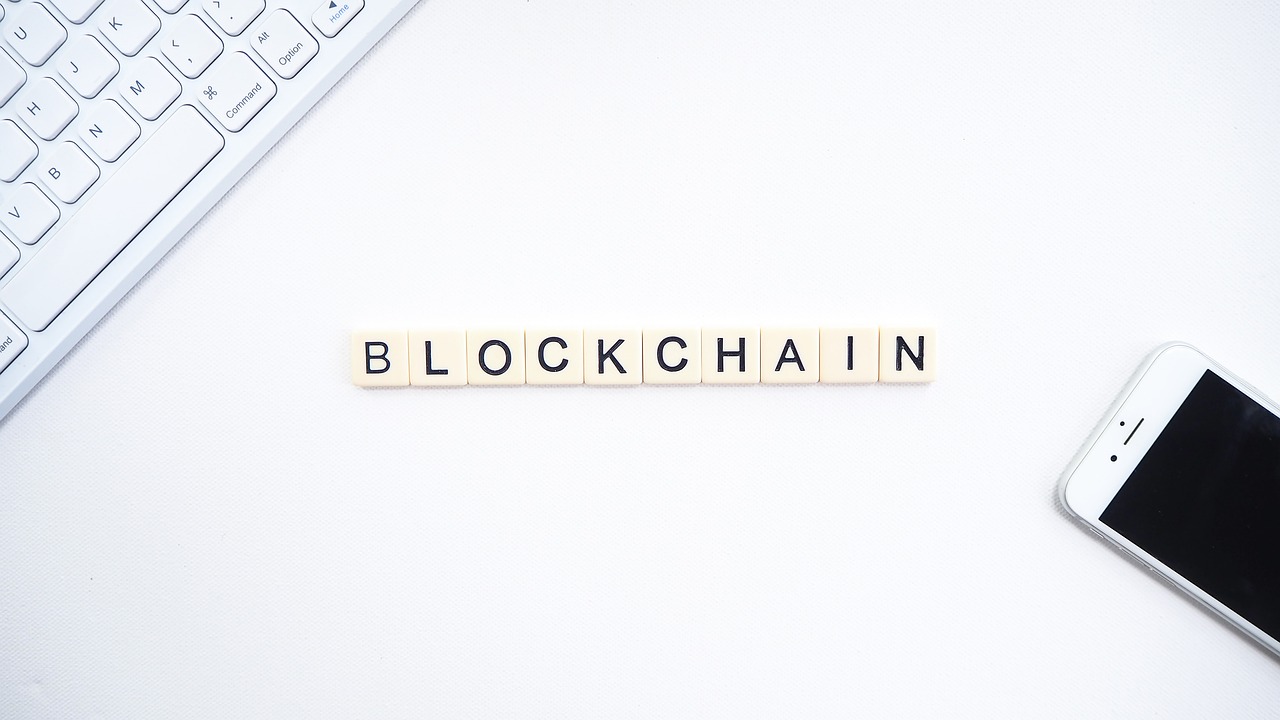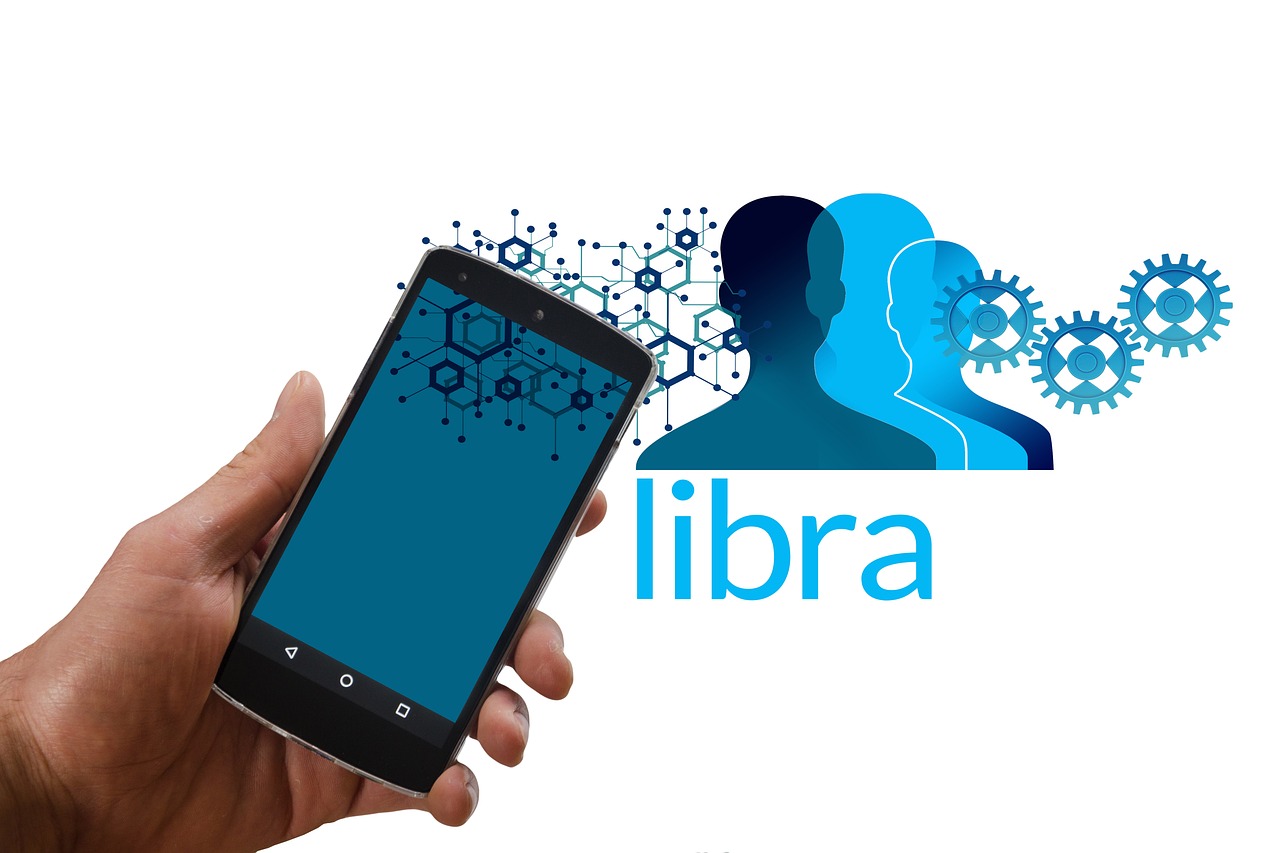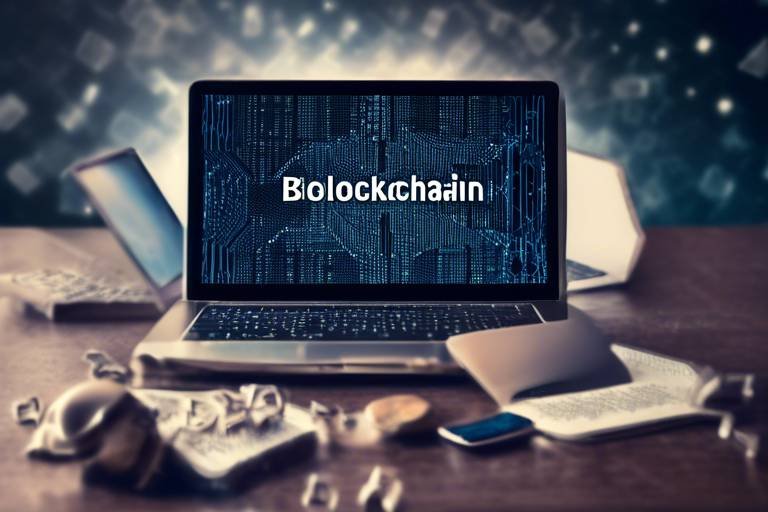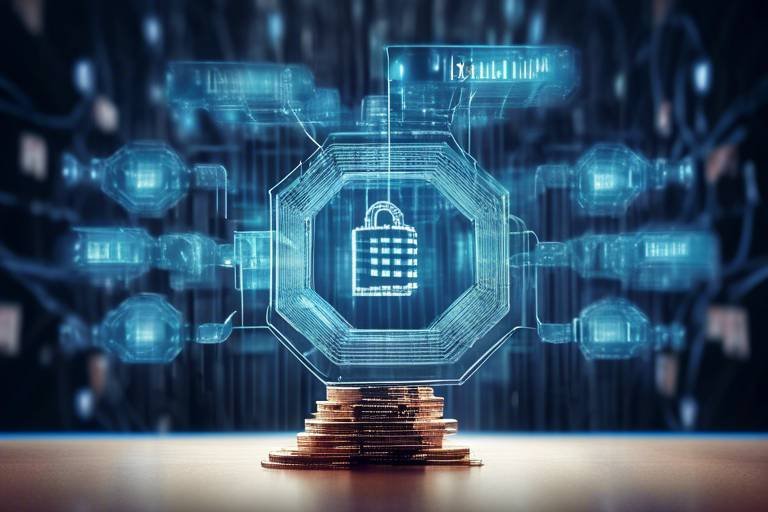The Benefits of Using Blockchain for Data Storage
In today's digital age, the way we store and manage data is evolving rapidly. Traditional data storage methods are increasingly being challenged by the innovative technology known as blockchain. This article explores how blockchain technology enhances data storage through security, transparency, and efficiency, while also discussing its potential challenges and future applications in various industries. As we dive into the world of blockchain, you'll discover how this technology not only protects your data but also transforms the way we think about data management.
Imagine a vault that is impenetrable, where your data is locked away from prying eyes and malicious attacks. That's the kind of security blockchain offers. By providing a decentralized and tamper-proof environment for data storage, blockchain significantly reduces the risk of unauthorized access and data breaches. Unlike traditional databases that are vulnerable to hacking, blockchain operates on a network of nodes, making it exceedingly difficult for any single entity to gain control or manipulate the data.
With its public ledger system, blockchain enables real-time tracking of data changes, fostering trust and accountability among users and stakeholders. Think of it as a glass box where everyone can see what's happening inside. This transparency is crucial in industries like finance and healthcare, where data integrity is paramount. When changes occur, they are recorded on the blockchain, and anyone with access can verify these changes instantly.
Blockchain ensures that data remains unaltered and authentic by utilizing cryptographic hashing techniques. This means that any attempt to change the data would be easily detectable, providing a level of assurance that is hard to achieve with conventional systems. When you think about it, it's like having a digital fingerprint for every piece of data—unique and unchangeable.
Once data is recorded on a blockchain, it cannot be changed, ensuring a permanent and verifiable history of transactions or data entries. This immutability is a game-changer for industries that require a reliable audit trail. For example, in supply chain management, companies can trace the journey of a product from its origin to the consumer, ensuring authenticity and compliance.
Blockchain’s transparent nature provides comprehensive audit trails, allowing organizations to trace data origins and modifications easily. This feature not only enhances accountability but also simplifies compliance with regulations. Imagine a world where audits are seamless, and discrepancies are virtually eliminated—this is the promise that blockchain holds.
The decentralized structure of blockchain eliminates the need for a central authority, reducing single points of failure and enhancing reliability. In traditional systems, if a central server fails, everything comes to a halt. However, with blockchain, even if one node goes down, the network continues to function, ensuring that your data remains accessible and secure.
Who doesn’t love saving money? By minimizing the need for intermediaries and reducing operational costs, blockchain can lead to significant savings for businesses in data storage and management. This cost efficiency is particularly appealing to startups and small businesses that often operate on tight budgets.
Blockchain can lower transaction fees associated with data transfers, making it a cost-effective solution for businesses. Imagine sending money across the globe without incurring hefty bank fees—this is the kind of financial liberation blockchain offers.
The use of blockchain can decrease ongoing maintenance costs by streamlining processes and reducing reliance on traditional data storage systems. Since blockchain automates many tasks, businesses can allocate resources more efficiently, allowing them to focus on growth and innovation.
As your business grows, so do your data storage needs. Blockchain technology offers scalable solutions that can adapt to increasing data storage needs without compromising performance or security. It’s like having a rubber band that stretches as you need it, but always returns to its original shape.
Blockchain can be integrated with existing data management systems, providing flexibility and ease of transition for organizations. This means businesses don’t have to overhaul their entire infrastructure to benefit from blockchain; they can enhance their current systems and gradually adopt this transformative technology.
As technology evolves, blockchain can adapt to emerging trends, ensuring that data storage solutions remain relevant and effective. This adaptability is crucial in a world where technological advancements occur at lightning speed. By investing in blockchain now, organizations can position themselves for future success.
- What is blockchain? Blockchain is a decentralized digital ledger that records transactions across multiple computers in a way that the registered transactions cannot be altered retroactively.
- How does blockchain enhance security? By decentralizing data storage and using cryptographic techniques, blockchain reduces the risk of unauthorized access and data breaches.
- Can blockchain be used in any industry? Yes, blockchain has applications in various industries, including finance, healthcare, supply chain, and more.

Enhanced Security
This article explores how blockchain technology enhances data storage through security, transparency, and efficiency, while also discussing its potential challenges and future applications in various industries.
When it comes to data storage, security is paramount. Imagine a vault that is not only locked but also monitored by thousands of eyes, each ensuring that no one can tamper with its contents. This is essentially what blockchain technology offers. By providing a decentralized and tamper-proof environment, blockchain significantly reduces the risk of unauthorized access and data breaches. Unlike traditional databases that are centralized and vulnerable to attacks, blockchain distributes data across a network of computers, making it nearly impossible for any single entity to manipulate or corrupt the data.
One of the standout features of blockchain is its use of cryptographic techniques. Each piece of data, or block, is linked to the previous one through a unique cryptographic hash. This means that if someone tries to alter a piece of data, it would change the hash, alerting the network to the tampering attempt. It's like trying to change a single domino in a perfectly aligned row; once you push it, the entire structure collapses, revealing the flaw. This level of security is particularly beneficial in industries where data integrity is non-negotiable, such as finance and healthcare.
Furthermore, the decentralized nature of blockchain eliminates the need for a central authority, which is often a single point of failure in traditional systems. In a blockchain network, even if one node goes down, the rest continue to operate seamlessly. This redundancy enhances reliability and ensures that data remains accessible and secure at all times. Organizations can rest assured that their sensitive information is safeguarded against both external attacks and internal mishaps.
To sum it up, blockchain technology offers an unparalleled level of security for data storage, characterized by:
- Decentralization: No single point of failure.
- Cryptographic security: Tampering is easily detectable.
- Redundancy: Data remains accessible even if parts of the network fail.
As organizations increasingly rely on digital data, adopting blockchain technology can be a game-changer. It not only protects sensitive information but also builds trust among users and stakeholders, paving the way for a more secure digital future.
With its public ledger system, blockchain enables real-time tracking of data changes, fostering trust and accountability among users and stakeholders.
Blockchain ensures that data remains unaltered and authentic by utilizing cryptographic hashing techniques, making it easier to verify information.
Once data is recorded on a blockchain, it cannot be changed, ensuring a permanent and verifiable history of transactions or data entries.
Blockchain’s transparent nature provides comprehensive audit trails, allowing organizations to trace data origins and modifications easily.
The decentralized structure of blockchain eliminates the need for a central authority, reducing single points of failure and enhancing reliability.
By minimizing the need for intermediaries and reducing operational costs, blockchain can lead to significant savings for businesses in data storage and management.
Blockchain can lower transaction fees associated with data transfers, making it a cost-effective solution for businesses.
The use of blockchain can decrease ongoing maintenance costs by streamlining processes and reducing reliance on traditional data storage systems.
Blockchain technology offers scalable solutions that can adapt to increasing data storage needs without compromising performance or security.
Blockchain can be integrated with existing data management systems, providing flexibility and ease of transition for organizations.
As technology evolves, blockchain can adapt to emerging trends, ensuring that data storage solutions remain relevant and effective.
Q: How does blockchain ensure data security?
A: Blockchain uses cryptographic techniques and a decentralized structure to make data tampering nearly impossible.
Q: Is blockchain technology expensive to implement?
A: While there may be initial costs, blockchain can lead to long-term savings by reducing operational costs and eliminating intermediaries.
Q: Can blockchain be integrated with existing systems?
A: Yes, blockchain can be designed to work alongside existing data management systems, making it a flexible solution for organizations.

Improved Transparency
In today's digital landscape, transparency is more than just a buzzword; it's a necessity. With the advent of blockchain technology, we are witnessing a paradigm shift in how data is managed and shared. The beauty of blockchain lies in its public ledger system, which allows for real-time tracking of data changes. Imagine a world where every transaction is visible and verifiable by all parties involved. This level of transparency fosters a sense of trust and accountability among users and stakeholders, which is crucial in any business relationship.
One of the standout features of blockchain is its ability to provide a clear and accessible history of data modifications. Each change is recorded in a manner that is both secure and easily traceable. This means that if a question arises about the authenticity of data, it can be quickly verified against the blockchain. For instance, consider a supply chain scenario where goods are tracked from the manufacturer to the retailer. With blockchain, each step in the journey is logged, allowing stakeholders to confirm that the products are genuine and sourced ethically.
The concept of data integrity is also reinforced through blockchain's cryptographic hashing techniques. Each piece of data is transformed into a unique hash, which acts like a digital fingerprint. If anyone tries to alter the data, the hash will change, alerting users to the tampering. This feature not only safeguards the data but also enhances the overall credibility of the information stored on the blockchain.
Furthermore, the immutable records characteristic of blockchain ensures that once data is entered, it cannot be modified or deleted. This creates a permanent and verifiable history of transactions or data entries. Imagine how this could revolutionize industries like finance, healthcare, or even voting systems, where the accuracy and reliability of data are paramount. With blockchain, the fear of losing critical information or facing discrepancies is significantly reduced.
The comprehensive audit trails provided by blockchain technology are another significant advantage. Organizations can easily trace the origins and modifications of data, which is particularly beneficial for regulatory compliance. In sectors such as finance and healthcare, where audits are routine, having a transparent and tamper-proof record can save time and resources. Instead of sifting through piles of documents, auditors can simply refer to the blockchain to verify transactions and data integrity.
In summary, the offered by blockchain technology not only enhances trust among users but also streamlines processes across various industries. As we continue to navigate an increasingly complex digital world, the ability to track and verify data changes in real-time will become an invaluable asset for businesses and organizations alike. With blockchain, the future looks bright, as it paves the way for a more transparent and accountable digital ecosystem.
- What is blockchain technology?
Blockchain is a decentralized digital ledger that records transactions across many computers in a way that the registered information cannot be altered retroactively. - How does blockchain enhance transparency?
Blockchain enhances transparency by providing a public ledger where all transactions are recorded and can be viewed by all parties involved, ensuring accountability. - Can blockchain be used in various industries?
Yes, blockchain technology can be applied in various sectors including finance, healthcare, supply chain management, and more, offering unique benefits in each.

Data Integrity
When it comes to data storage, integrity is paramount. Imagine a world where the information you rely on is consistently accurate and trustworthy. This is where blockchain technology shines. By utilizing cryptographic hashing techniques, blockchain ensures that once data is recorded, it remains unaltered and authentic. Each piece of data, or block, is linked to the previous one, creating a secure chain that is virtually impossible to tamper with. This is akin to a digital fingerprint that verifies the authenticity of every transaction or data entry.
Moreover, the decentralized nature of blockchain eliminates the risks associated with central points of failure. Traditional data storage systems often rely on centralized databases, making them vulnerable to hacks and unauthorized access. With blockchain, data is distributed across a network of computers, enhancing its security and integrity. This means that even if one node is compromised, the integrity of the entire system remains intact.
One of the most compelling aspects of blockchain's data integrity is its ability to provide real-time verification. Whenever data is modified, the blockchain records this change in an immutable manner. This creates a permanent and verifiable history of all transactions or modifications. For organizations, this means that they can easily trace the origins of their data and verify its authenticity at any time. This level of transparency fosters trust among users, stakeholders, and customers alike.
To further illustrate the importance of data integrity in blockchain, consider the following benefits:
- Authenticity: With cryptographic techniques, users can be confident that the data they are accessing is genuine.
- Accountability: The transparent nature of blockchain allows for easy tracking of data changes, holding individuals accountable for their actions.
- Trust: When users know that data cannot be altered without consensus, it builds a foundation of trust within the system.
In conclusion, blockchain technology revolutionizes data integrity by ensuring that information remains accurate, authentic, and unchangeable. As we continue to rely on data for decision-making and operations, the importance of maintaining its integrity cannot be overstated. The future of data storage is not just about storing information; it's about ensuring that the information we store is reliable and trustworthy.
- What is blockchain technology?
Blockchain is a decentralized digital ledger that records transactions across multiple computers in a way that the registered information cannot be altered retroactively. - How does blockchain ensure data integrity?
Blockchain uses cryptographic hashing and a decentralized structure to make sure that once data is recorded, it cannot be changed without consensus. - Can blockchain be integrated with existing systems?
Yes, blockchain can be integrated with existing data management systems, providing flexibility and ease of transition for organizations. - What industries can benefit from blockchain technology?
Various industries including finance, healthcare, supply chain, and real estate can benefit from blockchain's enhanced security, transparency, and efficiency.

Immutable Records
One of the standout features of blockchain technology is its ability to create . Once data is entered into the blockchain, it becomes a permanent part of the ledger, making it nearly impossible to alter or delete. This characteristic is akin to writing in stone—once it's there, it stays there. For businesses and organizations, this means that every transaction, every piece of data, and every change is recorded in a way that is both secure and verifiable.
The implications of immutable records are profound. Imagine a world where financial transactions, medical records, or even voting results are permanently etched into a system that everyone can trust. This not only enhances accountability but also builds a foundation of trust among users. In an era where data manipulation is a serious concern, the ability to ensure that information remains unchanged is invaluable.
Moreover, the concept of immutability in blockchain is supported by advanced cryptographic techniques. Each block in the chain contains a unique cryptographic hash of the previous block, along with its own data. This means that if someone tried to change the data in one block, it would alter its hash, causing a ripple effect that would be immediately noticeable. This is like having a security system that alerts you the moment someone tries to tamper with your home.
To illustrate the importance of immutable records, consider the following examples:
| Application | Benefit of Immutability |
|---|---|
| Financial Transactions | Prevents fraud and ensures accurate auditing |
| Medical Records | Guarantees patient data integrity and privacy |
| Supply Chain Management | Tracks product history and authenticity |
| Voting Systems | Ensures election transparency and fairness |
As we move forward, the significance of immutable records in blockchain will only continue to grow. With the rise of cyber threats and data breaches, having a system that offers such reliability and security is crucial. It’s like having a digital fortress protecting your most sensitive information. In conclusion, the immutability of records in blockchain technology not only enhances security but also fosters a culture of trust and integrity across various sectors.
- What is blockchain immutability?
Blockchain immutability refers to the inability to alter or delete data once it has been recorded on the blockchain, ensuring a permanent and verifiable history. - How does blockchain achieve immutability?
Blockchain achieves immutability through cryptographic hashing, where each block is linked to its predecessor, making any changes easily detectable. - What are the benefits of immutable records?
Immutable records enhance security, promote accountability, and build trust among users in various applications such as finance, healthcare, and supply chains. - Can data ever be changed on a blockchain?
No, once data is recorded on a blockchain, it cannot be altered or deleted, ensuring its integrity and authenticity.

Audit Trails
This article explores how blockchain technology enhances data storage through security, transparency, and efficiency, while also discussing its potential challenges and future applications in various industries.
Blockchain provides a decentralized and tamper-proof environment for data storage, significantly reducing the risk of unauthorized access and data breaches.
With its public ledger system, blockchain enables real-time tracking of data changes, fostering trust and accountability among users and stakeholders.
Blockchain ensures that data remains unaltered and authentic by utilizing cryptographic hashing techniques, making it easier to verify information.
Once data is recorded on a blockchain, it cannot be changed, ensuring a permanent and verifiable history of transactions or data entries.
One of the most compelling features of blockchain technology is its ability to create comprehensive audit trails. These trails are crucial for maintaining transparency and accountability in data storage. When a transaction occurs on the blockchain, it is recorded in a way that is both secure and permanent. This means that every change or addition to the data is logged, creating a transparent history that can be accessed and reviewed at any time.
Imagine a library where every book checked out is logged in real-time, and you can see who borrowed it, when it was returned, and if it was ever damaged. This is similar to how blockchain audit trails work; they provide a clear and unchangeable record of all data interactions. This capability is particularly beneficial for industries that require strict compliance and oversight, such as finance and healthcare.
Additionally, the audit trails enable organizations to:
- Trace Data Origins: Quickly identify where data originated and how it has been modified over time.
- Enhance Accountability: Hold parties responsible for their actions, as every transaction is recorded and visible.
- Facilitate Compliance: Meet regulatory requirements more easily by maintaining detailed records of all data interactions.
In essence, blockchain audit trails not only bolster data integrity but also empower organizations to operate with a higher level of confidence and trust. This feature is a game-changer for businesses looking to enhance their operational transparency and build stronger relationships with their customers.
The decentralized structure of blockchain eliminates the need for a central authority, reducing single points of failure and enhancing reliability.
By minimizing the need for intermediaries and reducing operational costs, blockchain can lead to significant savings for businesses in data storage and management.
Blockchain can lower transaction fees associated with data transfers, making it a cost-effective solution for businesses.
The use of blockchain can decrease ongoing maintenance costs by streamlining processes and reducing reliance on traditional data storage systems.
Blockchain technology offers scalable solutions that can adapt to increasing data storage needs without compromising performance or security.
Blockchain can be integrated with existing data management systems, providing flexibility and ease of transition for organizations.
As technology evolves, blockchain can adapt to emerging trends, ensuring that data storage solutions remain relevant and effective.
- What is blockchain technology? Blockchain is a decentralized digital ledger that records transactions across many computers in a way that the registered transactions cannot be altered retroactively.
- How does blockchain enhance data security? By providing a decentralized and tamper-proof environment, blockchain significantly reduces the risk of unauthorized access and data breaches.
- Can blockchain be integrated with existing systems? Yes, blockchain can be integrated with existing data management systems, offering flexibility and ease of transition.
- What industries can benefit from blockchain? Industries such as finance, healthcare, supply chain, and real estate can greatly benefit from the transparency, security, and efficiency offered by blockchain technology.

Decentralization Benefits
When we talk about decentralization in the context of blockchain, we're diving into a realm that fundamentally shifts how we perceive data management. Imagine a world where no single entity holds the keys to your data; instead, it’s spread across a network of computers, each contributing to a collective strength. This is the magic of blockchain. By eliminating the need for a central authority, blockchain not only reduces the risks associated with data breaches but also enhances the overall reliability of data storage systems.
One of the most compelling benefits of decentralization is the reduction of single points of failure. In traditional data storage systems, if the central server crashes or is compromised, the entire operation can come to a halt. However, in a decentralized system, even if one node fails, the rest of the network continues to function seamlessly. This redundancy not only ensures continuity but also boosts user confidence in the system. Think of it like a spider web; if one strand breaks, the web remains intact, still able to catch what it needs.
Moreover, decentralization fosters a sense of community ownership. When data is stored across a distributed network, users become stakeholders in the system. This shared responsibility encourages collaboration and innovation, leading to improved solutions that benefit everyone involved. It’s akin to a neighborhood potluck; everyone brings something to the table, and together, they create a feast that’s richer and more diverse than any single dish could offer.
Another significant advantage is the enhanced security that comes from decentralization. Since data is not stored in a single location, it becomes exceedingly difficult for hackers to target a centralized point. The distributed nature of blockchain means that even if one part of the network is attacked, the overall system remains secure. This is why many industries, especially finance and healthcare, are gravitating towards blockchain; they recognize the dire need for robust security measures in an age where data breaches are rampant.
Lastly, decentralization encourages transparency and accountability. In a decentralized system, every transaction is recorded and visible to all participants in the network. This openness not only builds trust among users but also deters fraudulent activities. When everyone can see the transactions, it’s much harder to manipulate the data without being noticed. This is a game-changer for industries where trust is paramount, such as supply chain management or voting systems.
In conclusion, the decentralization benefits of blockchain technology extend far beyond mere data storage. They pave the way for a more secure, reliable, and trustworthy environment, enabling organizations to operate more efficiently while fostering a community-driven approach to data management.
- What is decentralization in blockchain? Decentralization in blockchain refers to the distribution of data across a network of computers instead of being stored in a central location, enhancing security and reliability.
- How does decentralization improve security? By spreading data across multiple nodes, it becomes much harder for hackers to compromise the entire system, reducing risks associated with data breaches.
- What are the benefits of community ownership in decentralized systems? Community ownership fosters collaboration and innovation, leading to better solutions that benefit all stakeholders involved.
- Can decentralized systems ensure transparency? Yes, every transaction in a decentralized system is recorded and visible to all participants, promoting trust and accountability.

Cost Efficiency
In today’s fast-paced digital world, businesses are constantly on the lookout for ways to cut costs and improve their bottom line. One of the most exciting advancements in technology that promises to deliver significant savings is blockchain technology. By minimizing the need for intermediaries and reducing operational costs, blockchain can lead to substantial financial benefits for organizations involved in data storage and management. Imagine a world where you can streamline your processes, eliminate unnecessary fees, and still maintain top-notch security; that’s what blockchain offers!
One of the primary ways blockchain achieves this cost efficiency is by reducing transaction fees. Traditional data transfer methods often involve multiple intermediaries, each taking a cut of the transaction. This can quickly add up, especially for businesses that rely heavily on data exchanges. With blockchain, transactions can occur directly between parties, effectively cutting out the middlemen. This direct approach not only speeds up the process but also significantly lowers transaction costs. For example, a company that regularly transfers large volumes of data could save thousands of dollars annually by using blockchain instead of traditional methods.
Additionally, the implementation of blockchain can lead to lower maintenance costs. Traditional data storage systems often require extensive upkeep, including regular updates, security patches, and hardware maintenance. These ongoing expenses can be a drain on resources. In contrast, blockchain technology is designed to be self-sustaining. Once it's up and running, the need for constant maintenance is greatly reduced. This means that businesses can allocate their funds more efficiently, investing in growth and innovation rather than in outdated technology.
To illustrate the potential savings, consider the following table that outlines the typical costs associated with traditional data storage systems versus blockchain:
| Cost Category | Traditional Data Storage | Blockchain |
|---|---|---|
| Transaction Fees | High | Low |
| Maintenance Costs | High | Low |
| Intermediary Fees | Multiple | None |
| Data Breach Costs | High | Low |
As you can see, the differences are striking. Not only does blockchain provide a more cost-effective solution for data storage, but it also enhances security, reducing the potential costs associated with data breaches. In a world where data is the new currency, investing in a technology that protects this currency while simultaneously saving money is a no-brainer.
In conclusion, the cost efficiency of blockchain technology is a game-changer for businesses looking to optimize their data storage solutions. By reducing transaction fees and lowering maintenance costs, blockchain not only saves money but also allows companies to focus on what really matters: growth and innovation. So, if you’re still on the fence about adopting blockchain for your data storage needs, consider the financial benefits that come along with it. Embrace the future of data management and watch your savings soar!
- What is blockchain technology? - Blockchain is a decentralized digital ledger that records transactions across many computers so that the recorded transactions cannot be altered retroactively.
- How does blockchain enhance data security? - Blockchain’s decentralized nature and cryptographic techniques make it extremely difficult for unauthorized parties to access or alter data.
- Can blockchain be integrated with existing systems? - Yes, blockchain can be integrated with existing data management systems, providing flexibility and ease of transition for organizations.
- What industries can benefit from blockchain technology? - Industries such as finance, healthcare, supply chain, and real estate can all leverage blockchain for enhanced data storage and management.

Reduced Transaction Fees
In the world of business, every penny counts, and when it comes to data transfers, reducing costs can lead to significant savings. One of the standout benefits of blockchain technology is its ability to lower transaction fees. Traditional data storage solutions often involve multiple intermediaries, each taking a cut of the transaction, which can quickly add up. With blockchain, this middleman is eliminated, allowing for direct peer-to-peer transactions.
Imagine trying to send money through a bank. You might pay fees for the transfer, and if you're sending money internationally, those fees can skyrocket. Now, picture sending that same amount through a blockchain network, where the transaction is processed directly without a bank's involvement. The result? Lower costs and faster transactions!
Here’s a quick breakdown of how blockchain reduces transaction fees:
- Direct Transactions: By connecting users directly, blockchain minimizes the need for intermediaries, which means fewer fees.
- Efficiency: Transactions on the blockchain can be executed almost instantly, reducing the time and resources spent on processing.
- Transparent Pricing: With blockchain, the fee structure is often clear and predictable, allowing businesses to plan their budgets more effectively.
To illustrate this further, consider the following table that compares transaction fees across different data storage methods:
| Method | Average Transaction Fee | Speed |
|---|---|---|
| Traditional Banking | $5 - $50 | 1-3 Business Days |
| Payment Processors (like PayPal) | $0.30 + 2.9% of the transaction | Instant |
| Blockchain Transactions | Less than $1 | Minutes |
As shown in the table, blockchain transactions are not only cheaper but also significantly faster than traditional banking methods. This efficiency can be a game-changer for businesses that rely on quick data transfers and need to keep operational costs low.
Moreover, the reduced transaction fees associated with blockchain can lead to innovative business models. Companies can pass these savings onto their customers, creating a more competitive market environment. This not only enhances customer satisfaction but also fosters loyalty, as customers are likely to choose businesses that offer better pricing and services.
In conclusion, the potential for reduced transaction fees through blockchain technology is a compelling reason for businesses to consider adopting this innovative approach. As we continue to explore the advantages of blockchain for data storage, it becomes clear that the financial benefits can significantly enhance operational efficiency and drive growth.
Q1: How does blockchain technology lower transaction fees?
A1: Blockchain lowers transaction fees by eliminating intermediaries, allowing for direct peer-to-peer transactions, which reduces costs significantly.
Q2: Are blockchain transactions always cheaper than traditional methods?
A2: While not every transaction will be cheaper, blockchain generally offers lower fees compared to traditional banking and payment processing methods.
Q3: How quickly can I expect a blockchain transaction to be completed?
A3: Blockchain transactions are typically completed within minutes, depending on the network congestion and other factors.

Lower Maintenance Costs
One of the most compelling advantages of utilizing blockchain technology for data storage is the significant reduction in maintenance costs. Traditional data storage systems often require extensive resources for upkeep, including regular updates, security patches, and hardware replacements. These expenses can quickly add up, creating a financial burden for many organizations. In contrast, blockchain operates on a decentralized network, which inherently reduces the need for constant maintenance.
With blockchain, data is stored across a network of nodes, which means there is no single point of failure. This decentralized structure not only enhances security but also minimizes the need for a large IT team dedicated to managing and maintaining the infrastructure. Instead of worrying about server downtimes or data loss, companies can redirect their resources towards innovation and growth. Imagine having the freedom to invest in new projects rather than pouring money into outdated systems!
Moreover, the automated processes that blockchain facilitates can significantly streamline operations. For example, smart contracts—self-executing contracts with the terms of the agreement directly written into code—can automate many routine tasks that would otherwise require manual intervention. This automation can lead to a decrease in labor costs and a reduction in human error, which often contributes to additional expenses.
To illustrate the cost-saving potential, consider this table comparing traditional data storage systems with blockchain:
| Aspect | Traditional Data Storage | Blockchain |
|---|---|---|
| Maintenance Team Size | Large | Smaller |
| Regular Updates | Frequent | Minimal |
| Data Breach Costs | High | Lower |
| Operational Complexity | High | Lower |
In summary, the transition to blockchain technology not only enhances the security and integrity of data but also leads to . By reducing the need for extensive IT resources and automating processes, organizations can achieve a more efficient operational model. As businesses continue to explore the benefits of blockchain, it becomes clear that the financial implications are as significant as the technological advancements.
- What are the main benefits of using blockchain for data storage? Blockchain offers enhanced security, improved transparency, and lower maintenance costs, making it an attractive option for organizations.
- How does blockchain reduce maintenance costs? By decentralizing data storage and automating processes through smart contracts, blockchain minimizes the need for a large IT team and reduces operational complexity.
- Can blockchain be integrated with existing systems? Yes, blockchain technology can be integrated with current data management systems, providing flexibility and ease of transition for businesses.
- Is blockchain technology future-proof? Blockchain can adapt to emerging trends and technologies, ensuring that data storage solutions remain relevant and effective.

Scalability and Flexibility
One of the most remarkable features of blockchain technology is its scalability and flexibility. As businesses grow and data needs expand, traditional data storage solutions often struggle to keep up. Imagine trying to fit an elephant into a tiny room; it just doesn’t work! Similarly, conventional systems can become overwhelmed, leading to slowdowns, inefficiencies, and even data loss. Blockchain, on the other hand, is designed to scale effortlessly, accommodating increasing amounts of data without compromising on performance or security.
The beauty of blockchain lies in its distributed architecture. Instead of relying on a single server to handle all transactions, blockchain spreads the load across a network of computers, or nodes. This decentralization not only enhances security but also allows the system to expand as needed. When more data is added, it’s like adding more lanes to a busy highway; traffic flows smoothly, and everyone gets to their destination without a hitch.
Organizations can also benefit from the flexibility that blockchain offers. For instance, it can be integrated with existing data management systems, allowing businesses to transition smoothly without the need for a complete overhaul. This is particularly advantageous for companies that have invested heavily in traditional systems but are looking to modernize. By adopting blockchain, they can enhance their operations while still leveraging their current infrastructure.
Furthermore, blockchain technology is future-proof. As we move into an era defined by rapid technological advancements, businesses need solutions that can adapt to emerging trends. Blockchain is inherently designed to evolve, ensuring that data storage solutions remain relevant and effective. This adaptability can be a game-changer for industries such as finance, healthcare, and supply chain management, where the volume and complexity of data are constantly increasing.
In addition to scalability and flexibility, blockchain offers unique interoperability features. This means that different blockchain systems can communicate with each other, allowing for seamless data exchange and collaboration across various platforms. This is particularly important in today’s interconnected world, where businesses often rely on multiple systems to operate efficiently.
To sum it up, the scalability and flexibility of blockchain technology provide businesses with a robust foundation for managing their data storage needs. By embracing this innovative solution, organizations can ensure they are well-equipped to handle future challenges and opportunities in an ever-evolving digital landscape.
- What is blockchain scalability? Blockchain scalability refers to the ability of the blockchain network to handle an increasing amount of transactions and data without compromising performance.
- How does blockchain ensure flexibility? Blockchain can be integrated with existing systems, allowing organizations to modernize their data storage without a complete system overhaul.
- Can blockchain adapt to future technologies? Yes, blockchain is designed to evolve and adapt, making it a future-proof solution for data storage.
- Why is decentralization important for scalability? Decentralization distributes the workload across multiple nodes, reducing the risk of bottlenecks and enhancing overall system performance.

Interoperability with Existing Systems
When it comes to adopting new technologies, one of the biggest concerns for organizations is how well these innovations can integrate with their existing systems. Interoperability is crucial, especially in the realm of data storage, where businesses often rely on a combination of legacy systems and modern solutions. Fortunately, blockchain technology is designed to be flexible and adaptable, making it an excellent candidate for seamless integration.
Imagine trying to fit a square peg into a round hole; that’s how many organizations feel when they attempt to adopt new technologies that don’t mesh well with their current infrastructure. However, blockchain offers a solution that can bridge this gap. It can interact with various data management systems, allowing businesses to leverage the strengths of both old and new technologies. This means that companies don’t have to abandon their existing systems entirely but can instead enhance them with blockchain capabilities.
Moreover, many blockchain platforms are built with interoperability in mind. They provide APIs (Application Programming Interfaces) that allow for easy communication between different systems. This capability is essential for organizations that want to maintain their operational flow while gradually transitioning to more advanced solutions. By using these APIs, businesses can ensure that their data is consistent and accessible across all platforms, reducing the likelihood of errors and improving overall efficiency.
In addition, blockchain’s modular architecture allows businesses to implement it in stages. Organizations can start with specific applications—such as supply chain management or customer data handling—and then expand their use of blockchain as they become more comfortable with the technology. This gradual approach not only minimizes disruption but also allows for the testing of blockchain’s effectiveness within the existing framework.
To illustrate the potential benefits of blockchain interoperability, consider the following table:
| Feature | Traditional Systems | Blockchain Systems |
|---|---|---|
| Integration Complexity | High | Low |
| Data Consistency | Often Compromised | High Assurance |
| Scalability | Limited | Highly Scalable |
| Cost of Transition | Potentially High | Cost-Effective |
This table highlights that while traditional systems often struggle with integration and scalability, blockchain provides a more streamlined and efficient alternative. The cost-effective nature of blockchain, combined with its ability to maintain data consistency, makes it an attractive option for businesses looking to modernize their data storage solutions.
In conclusion, the interoperability of blockchain with existing systems is not just a technical advantage; it’s a strategic necessity. By embracing this technology, organizations can enhance their data management capabilities while ensuring a smooth transition that respects their established workflows. As businesses continue to seek ways to optimize their operations, the role of blockchain in facilitating interoperability will undoubtedly grow, making it a key player in the future of data storage.
- What is blockchain interoperability? - Blockchain interoperability refers to the ability of different blockchain networks and existing systems to communicate and work together effectively.
- Why is interoperability important? - It allows organizations to leverage both new and existing technologies, improving efficiency and reducing costs.
- Can blockchain be integrated with legacy systems? - Yes, many blockchain solutions are designed to integrate seamlessly with legacy systems through APIs and other tools.
- What are the benefits of using blockchain for data storage? - Benefits include enhanced security, improved transparency, cost efficiency, scalability, and flexibility.

Future-Proofing Data Storage
In a world where technology is evolving at lightning speed, is more than just a trend; it’s a necessity. Imagine having a data storage solution that not only meets your current needs but is also adaptable enough to embrace future advancements. That’s where blockchain technology comes into play. By leveraging its inherent flexibility, organizations can ensure that their data storage solutions remain relevant and effective, regardless of how rapidly the digital landscape changes.
One of the most compelling aspects of blockchain is its ability to integrate with emerging technologies. For instance, as artificial intelligence (AI) and machine learning (ML) continue to gain traction, blockchain can seamlessly interact with these technologies to enhance data security and processing efficiency. This interoperability allows businesses to harness the power of AI-driven analytics while maintaining the integrity and security of their data. The result? Organizations can make informed decisions based on accurate, tamper-proof data.
Moreover, blockchain’s decentralized nature means that it is less susceptible to single points of failure. In traditional data storage systems, a failure in a central server can lead to catastrophic data loss. However, with blockchain, data is distributed across a network of nodes, making it resilient against attacks and failures. This is akin to having a safety net that ensures your data is always accessible, no matter what happens. It’s this kind of reliability that makes blockchain a forward-thinking choice for data storage.
As we look towards the future, it’s essential to consider the scalability of data storage solutions. Blockchain technology is designed to grow with your organization. Whether you’re a startup or a large enterprise, blockchain can accommodate increased data volumes without sacrificing performance. This scalability is crucial as businesses generate more data than ever before. According to recent studies, the amount of data created globally is expected to reach 175 zettabytes by 2025. With blockchain, companies can ensure they have a robust solution ready to handle this influx.
In addition to scalability, organizations must also think about compliance with evolving regulations. Data privacy laws are becoming increasingly stringent, and businesses need to ensure they are compliant with regulations such as GDPR and CCPA. Blockchain offers a transparent and secure way to manage data, making it easier for organizations to adhere to these regulations. By utilizing blockchain, companies can provide verifiable proof of data handling practices, building trust with customers and regulators alike.
Lastly, as we venture into the realm of the Internet of Things (IoT), the need for secure and efficient data storage becomes even more pronounced. Blockchain can facilitate secure data sharing among IoT devices, ensuring that data remains unaltered and accessible. This capability is crucial as the number of connected devices continues to skyrocket, creating a complex web of data that needs to be managed effectively.
In conclusion, future-proofing data storage with blockchain technology is not just about keeping up with the times; it’s about staying ahead of the curve. By embracing this innovative technology, organizations can ensure their data storage solutions are not only secure and efficient but also adaptable to the challenges and opportunities of tomorrow.
- What is blockchain technology? Blockchain is a decentralized digital ledger that records transactions across many computers in such a way that the registered transactions cannot be altered retroactively.
- How does blockchain enhance data security? By decentralizing data storage and using cryptographic techniques, blockchain significantly reduces the risk of unauthorized access and data breaches.
- Can blockchain integrate with existing data systems? Yes, blockchain can be integrated with current data management systems, providing flexibility and ease of transition for organizations.
- What industries can benefit from blockchain data storage? Industries such as finance, healthcare, supply chain, and many others can leverage blockchain for enhanced data security, transparency, and efficiency.
Frequently Asked Questions
- What is blockchain technology?
Blockchain technology is a decentralized digital ledger that records transactions across many computers. This ensures that the recorded transactions cannot be altered retroactively, providing a high level of security and transparency.
- How does blockchain enhance data security?
Blockchain enhances data security by creating a tamper-proof environment where data is stored in a decentralized manner. This means there is no single point of failure, making unauthorized access and data breaches significantly more difficult.
- What are immutable records in blockchain?
Immutable records refer to the fact that once data is entered into a blockchain, it cannot be changed or deleted. This creates a permanent and verifiable history of all transactions, ensuring data integrity.
- Can blockchain reduce costs for businesses?
Absolutely! By minimizing the need for intermediaries and streamlining processes, blockchain can significantly reduce operational costs and transaction fees, making it a cost-effective solution for data storage and management.
- Is blockchain scalable?
Yes, blockchain technology is designed to be scalable. It can adapt to increasing data storage needs without compromising on performance or security, making it suitable for businesses of all sizes.
- How does blockchain ensure data integrity?
Blockchain ensures data integrity through cryptographic hashing techniques that verify information. Each block of data is linked to the previous one, making it nearly impossible to alter any part of the chain without detection.
- What are audit trails in blockchain?
Audit trails in blockchain provide a comprehensive record of all transactions and data changes. This transparency allows organizations to trace the origins and modifications of data easily, fostering trust among users.
- Can blockchain be integrated with existing systems?
Yes, blockchain can be integrated with existing data management systems. This interoperability provides organizations with the flexibility to transition smoothly without disrupting their current operations.
- What are the future applications of blockchain in data storage?
Future applications of blockchain in data storage are vast and include areas like supply chain management, healthcare, finance, and more. As technology evolves, blockchain will continue to adapt, ensuring that data storage solutions remain relevant and effective.



















